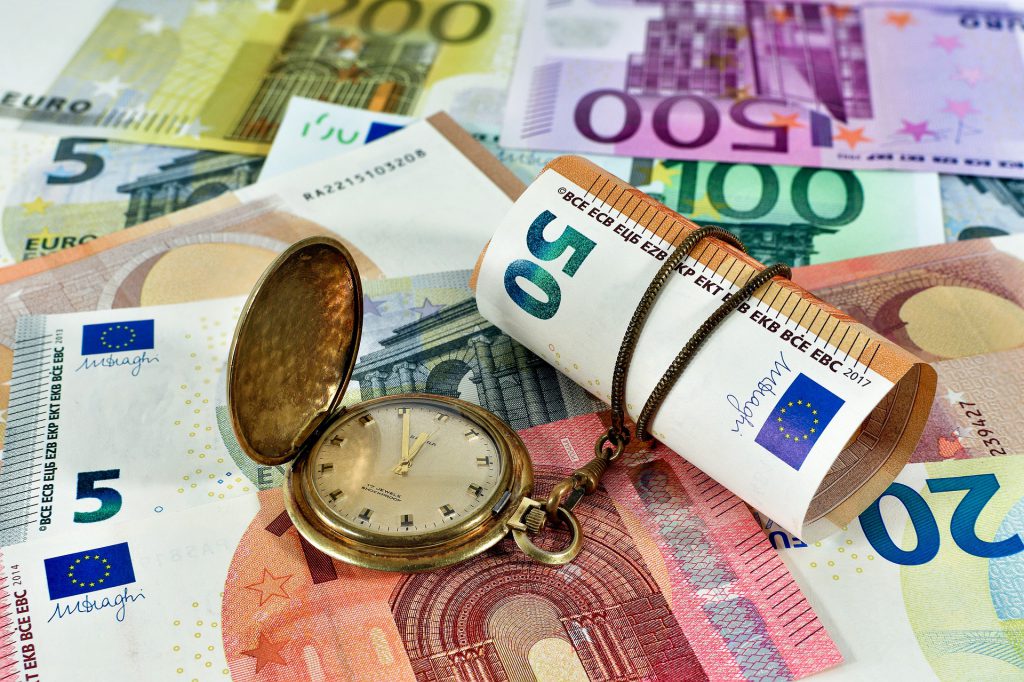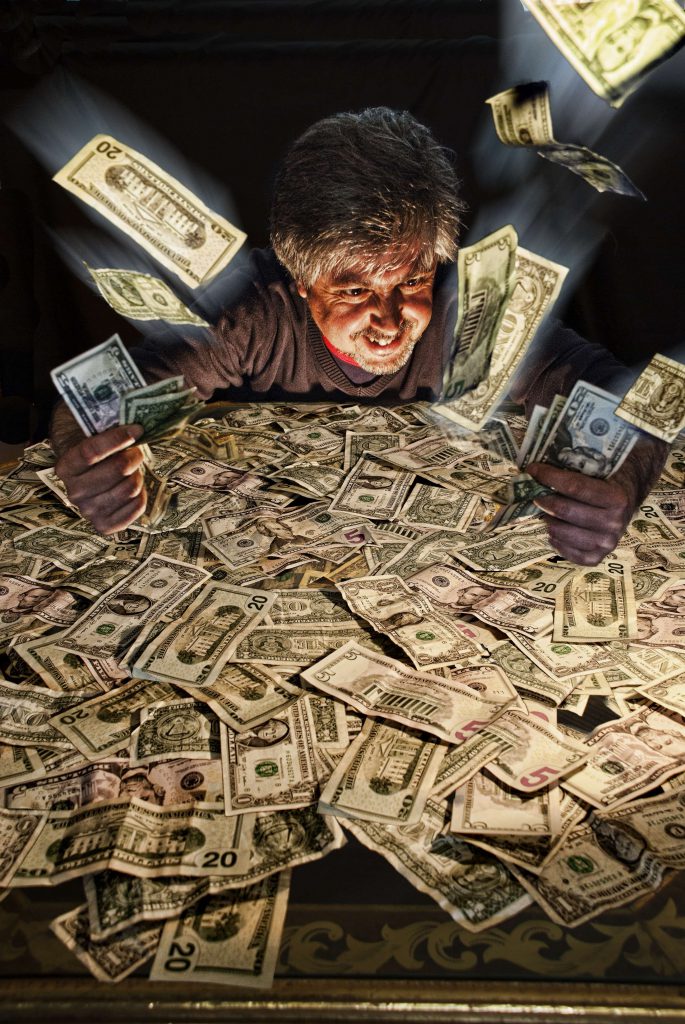
It started all by trying to find an easy way to trade over distance and between different goods. The basic principle of fair trade is assigning value to goods based on the amount of work needed to make, catch or pick them, etc. For example, you could trade 500 apples for a pig. That works fine when you trade with your neighbor, but dragging 500 apples over 10 kilometers is very inconvenient. First silver and gold were used as the solution, but soon coins and later paper money were commonly accepted.
In combination with the urbanization (which required many goods from outside), brokering (transport/storage) and later on banks (security/lenders) arose. These services (which produced nothing itself) saved the buyer and seller effort and time, for that they asked money. This service group grew and made more and more money. Money that no longer had a direct relationship with the amount of work; to make, catch or pick the goods. Capitalism was born. Money became more important than goods because with money you could buy everything.
Capitalism is the name we came up with after the practice already existed. We can conclude that (initially) the present form of capitalism has not been the main objective. During its further development laws of economics came into existence like “Demand and Supply”, and shaped capitalism in its present form.

In the last 150 years, capitalism made a great flight which caused the living standards to rise. The rich became richer, but also the living standards of the “workers” improved. This was unavoidable, people needed money to buy the products produced. The present capitalist system has grown out of control and has become a money generator that uses consumers as fuel. It literally reduces people to numbers; starting with your ID number, social security number, tax number, etc.. The system knows what you earn, spend and are worth but has no clue, or interest, in who you are, what you feel and want out of life.
Capitalism and our daily lives are connected with each other and combined into a well-oiled machine, our society. You can’t just take a part out and expect it to continue functioning without a problem. Society is created by us humans, but it has outgrown us. It shapes and conditions us to become the perfect worker and consumer. It’s no longer supply and demand but supply and consumes. Society has become so ‘smart’ that it makes us believe that we are in control and still it gets exactly what it wants, more profit! Apparently you can never have enough money or power. But why is this?
The oldest part of our brain is also called the reptile brain and is purely focused on survival, instinct, and automatic reaction. Next, we have our emotional part of the brain, focused on negative and positive experiences. Finally, the rational part of the brain is concerned with thinking, planning, etc… The decision-making process follows the same path. Is it dangerous? Do we like it? Is it wise? Unfortunately, the reptile brain and emotional brain determine 80% of our choices. They are initially selfish and only social when we use our rational brain, except for people dear to us. So the conclusion is that we can do nothing? Because it´s by design?
I don’t believe that’s true. We have made enormous steps as humanity, especially in the last 150 years. Of course, a lot can be improved. Just like our children, we learn by trial and error. We have been learning faster and faster, every next generation is expected to be at least 10% smarter (see intelligence). However, now this progress slows down. To my beliefs, our modern society lacks challenges because of a high level of prosperity. Most of them are trapped in a system that has elevated individuality and independence to the highest attainable. They have become production units that are kept artificially ‘happy’ with gifts that were already theirs. Their only challenge is to meet the requirements of a society that doesn’t care much about what makes them really happy (see happiness).

We are always changing and adapting ourselves to our circumstances. Because our material needs to generate short term happiness we subtract a disproportionate big amount of the available natural resources. Nature makes us well aware of the consequences. We are looking for a way to prevent a catastrophe, but with our current system that will be difficult. But we need a proper alternative before we discard our current system. This new alternative needs basic values like, identify the people by their needs and feelings instead of their economic value. If we can actually do this, we will not only prevent a catastrophe, but it will bring us closer together and unite us all over the globe. So there is sufficient reason for hope, especially when we understand and accept the process of growing (see topic People oppose change).